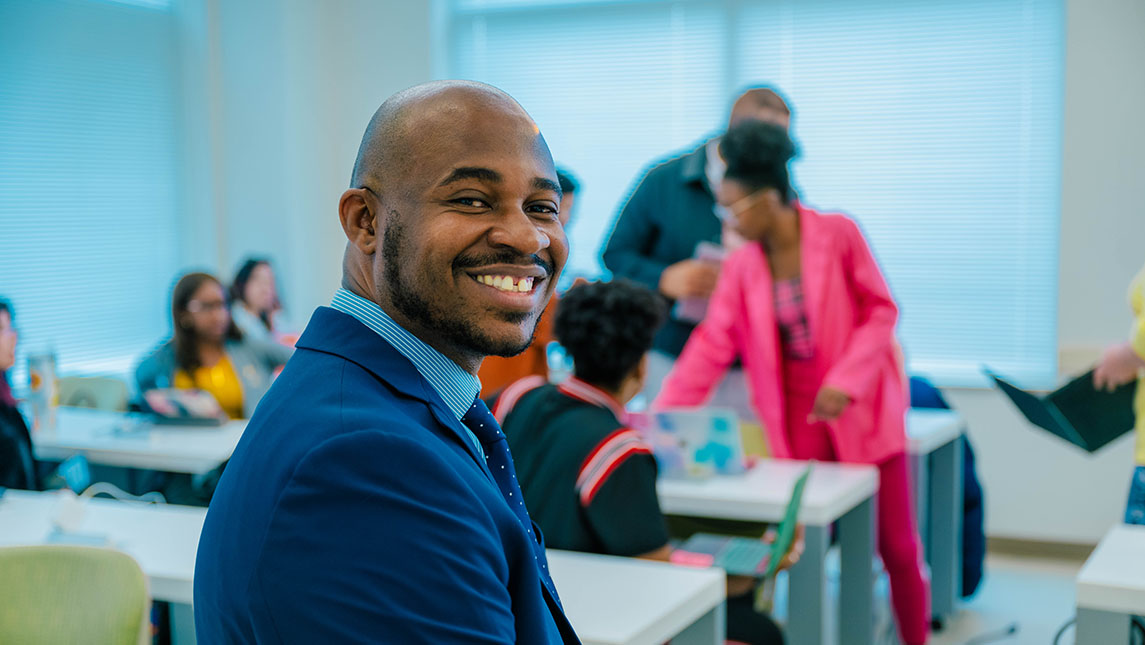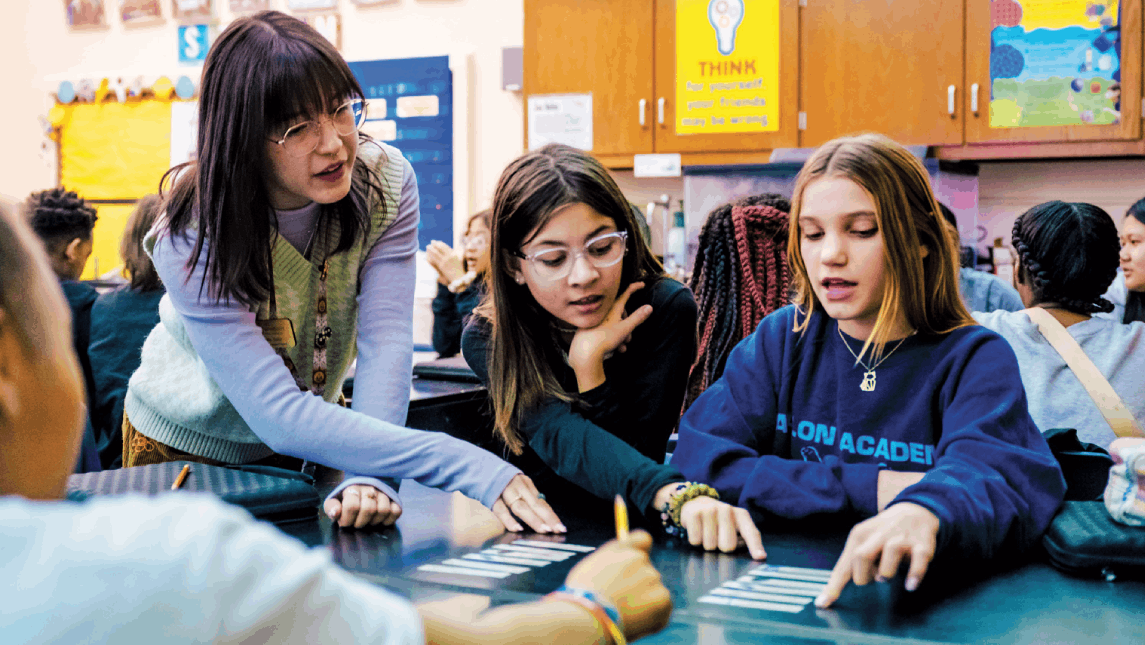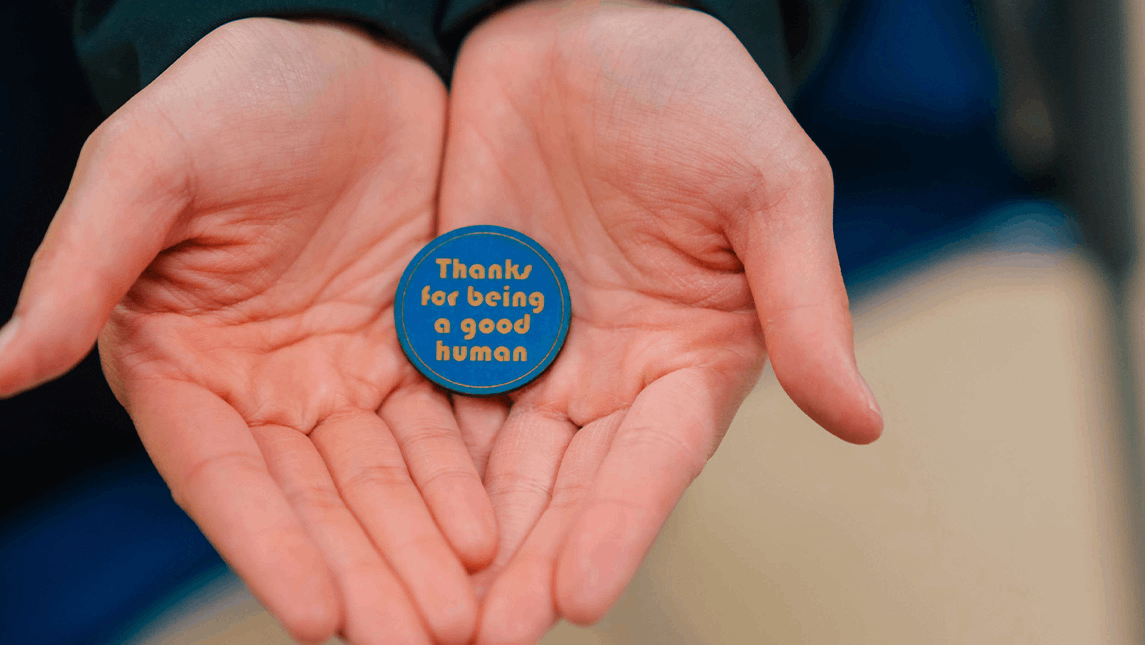When it comes to the education of students with severe cognitive disabilities, research supports that these children have better outcomes as students when they are in a general education environment with peers who do not have disabilities. They have models around them to imitate and interact with, rather than being with adults who are trying to figure out how to engage with them. However, having students with severe disabilities included in a general education classroom is not what most teachers and administrators are used to.
Dr. Diane Ryndak, a professor in the Specialized Education Services Department in the UNC Greensboro School of Education, focuses on teacher and doctoral level preparation, with an emphasis on collaborative teams meeting the complex needs of students with significant intellectual and other disabilities through the use of evidence-based practices that result in access to general education curriculum and contexts.
In 2017, Dr. Ryndak received funding from the U.S. Department of Education Office of Special Education Programs (OSEP) for the Project LEAPS: Leadership in Extensive and Pervasive Support Needs. Dr. Ryndak and Dr. Christie Cavanaugh are the co-principal investigators, and Kara Holden is the project coordinator. LEAPS started in January 2018, with the first semester being spent recruiting students, and the student funding starting in Fall 2018. The students are funded for four years, which should get them through their doctoral program.
LEAPS collaborates with the North Carolina Department of Public Instruction, low-performing schools in North Carolina, self-advocates and parents of students with disabilities, and national experts to prepare leaders in research and the preparation of teachers to meet the needs of students with severe disabilities. These are students who are far below grade level; at risk of not graduating with a regular high school diploma on time; or not on track to being college- or career-ready by graduation.
The goal of LEAPS is inclusive education and school reform, making sure that students with severe disabilities are placed in general education settings. LEAPS works with both special education and general educations teams of people to look at instruction and the use of research-based practices in those settings.
“It’s not just about getting the expertise to prepare teachers to work with these kids, but also thinking about how we can work with schools to get them to change what they’re doing to get past that research-to-practice gap,” Dr. Ryndak says.
LEAPS has a seminar scheduled each year that the project is funded, where they bring in national experts on specific topics. The seminars are a way to give students access to national leaders that specialize in research on specific topics surrounding Project LEAPS, such as severe disabilities, inclusive education, and systems change in schools. In April 2019 they hosted a national expert related to school improvement and implementation science. The previous year they hosted a team of two researchers who had been looking at placement data nationally, and patterns of how kids with severe disabilities are being placed in schools (segregated versus not segregated), and trying to figure out why there is a lack of change and services for this population.
Project LEAPS is currently funding three doctoral students, with a fourth student starting in Fall 2019. Each doctoral student has a personal tie to the issue at hand.
“One of our students is a parent of adult children, but she had a child who passed away with significant disabilities,” Dr. Ryndak says. “She’s been working with attorneys and disability rights groups who are advocating with parents for their kids with severe disabilities to be placed in general education settings. She has come to us from that angle. Another one of our students is a parent of a child with Down syndrome, and was the executive director of an advocacy group related to inclusive education for kids with disabilities, and her background is social work. The third student was in a classroom for 11 years with kids with significant disabilities, trying to do systemic change from inside, and has now come back for her doctorate. So they all bring different lenses.”
Two of the three current Project LEAPS students are engaged in research in Maryland, where they are working with the state department, districts, and schools. Soon they will be looking at data collection, what’s happening with kids in classes, and how they can help move the kids but change the practice. The LEAPS students also had the opportunity to visit Alachua County Schools in Florida in May 2018 where they are already implementing these inclusive-education practices so they could see this type of service for kids with severe disabilities, and a school district’s commitment to providing these services.
In addition to LEAPS, Dr. Ryndak is on a national project with the TIES Center, which is funded to develop a technical assistance process that works with the state department, school districts in that state, schools in those districts, and education teams who are serving students with the most significant cognitive disabilities.
“The intent is to move those kids to general education placements, but doing it in a systemic way: top-down, bottom-up, and laterally, so that the system is changing, rather than just changing for one kid so that it’s sustainable,” Dr. Ryndak says.


